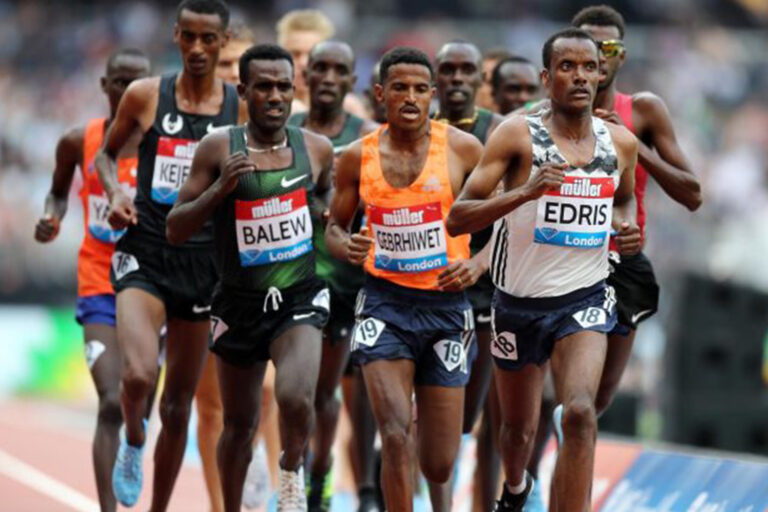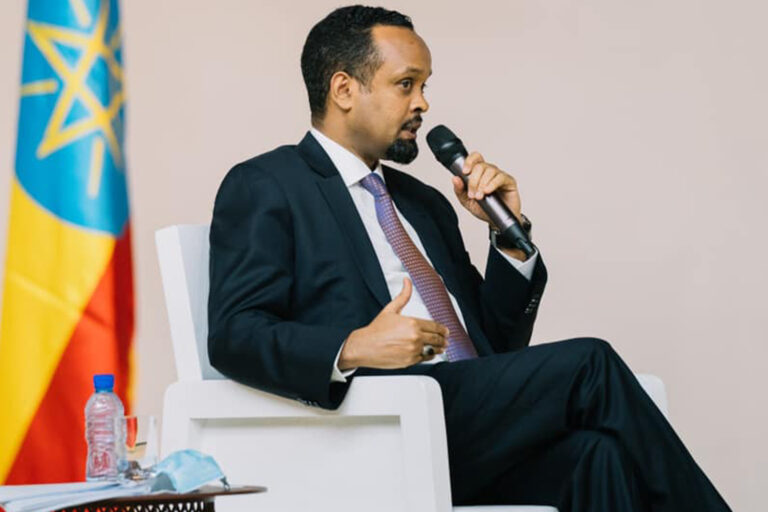The last two months were supposed to be big for athletics as the season started in earnest ahead of an Olympic Games in July but instead, a host of events have – as in other sports – been either postponed or cancelled.
The first half of the year should have seen the World Indoor and World Half Marathon championships take place in March, and the start of series like the World Marathon Majors, Diamond League and Continental Tour.
The African Athletics Championships slated for June have been moved to 2021 – so with no competition at all, how on earth are athletes coping financially?
Berlin, Boston, London and Paris are some of the major road races that have been postponed to the second half of 2020, while others, such as Rome, have effectively been cancelled this year.
So any athlete who might have run up to four marathons per annum will probably only run one, at best.
“A sub-2:08 marathoner runs up to three marathons a year and a sub-2:13 up to four marathons a year,” says Kipngeno, who had previously planned to compete in four marathons this year. “The faster the marathon, the more recovery you need.”
Marathon runners can earn as little as $1,000 a race in prize money all the way up to $100,000 and more depending on race status and final position.
World Marathon Majors races – which encompass Berlin, Boston, Chicago, London, New York and Tokyo – have better appearance fees for a select group of athletes and better prize money too.
At London, for example, elite athletes compete for a total of $313,000 in prize money with the male and female champions each taking home $55,000.
The top 12 finishers are rewarded, with the 12th person taking home $1,000, while there is additional pay for faster times, which can be related to a shoe contract and/or breaking the world or course record.
Nonetheless, the fact that many races will be bunched closer together in the calendar means athletes will inevitably miss some of the marathons, or half marathons and 10k races, which they had once aimed to contest.
“It is going to be a disaster for the athletes,” says Boeting. “Half of the year for road race athletes is already gone with all the races cancelled. This means that athletes without contracts will go to an income of zero for the first six-seven months of the year, and those with contracts will lose 40-70% of their income.”
With no events to contest, some athletes can fall back on their shoe contracts, which range from $5,000 per year for smaller deals to $100,000 plus for bigger ones.
“During this pandemic, I don’t have to worry about how much to spend buying or replacing running shoes or on getting the right clothes for the training weather – that’s where the contract comes in handy,” Amos explains.
Nonetheless, he freely admits that he is turning to savings and investments to cover this period which highlights how life might be for those without shoe contracts.
Coronavirus: how it hit African athletes’ finances
Mali’s Traore out to make his own name
Most footballers dream of going down in the history of their sport. Young Mali playmaker Adama Traore is no exception, having already left his mark on the FIFA U-20 World Cup. Like Lionel Messi in 2005, Sergio Aguero in 2007 and Paul Pogba in 2013, he won the competition’s adidas Golden Ball in 2015.
That coveted accolade, which Traore collected after helping Mali take third place in the tournament, was his last to date. It is a barren run that owes nothing to a lack of ambition or talent and everything to the fates conspiring against him. Within a few weeks of his impressive New Zealand 2015 campaign, and after signing for French club AS Monaco, the high-flying Eagle suffered a serious ankle injury.
In a loan spell with Metz, he has played more matches this year than in the previous three. In the process, he showed he has not lost his gift for the game.
Traore’s return to form has come at just the right time for his national team. A regular presence at the CAF Africa Cup of Nations, the Eagles are hoping to reach the FIFA World Cup™ for the first time in their history, with the second round of the continent’s qualifying competition set to begin later this year.
That recipe has worked to perfection for Mali’s youth teams, who have regularly excelled at U-17 and U-20 level. In contrast, the country’s seniors have found success a good deal harder to come by. “I think a lot of it comes down to the mental side of things and perhaps to a lack of experience at major tournaments,” explained Traore. “I’ve got faith, though, and I’m convinced we have the quality to qualify this time.”
There is every reason to believe him. In addition to a revitalised Traore and his fast-maturing colleagues in that impressive U-20 squad, Mali can also call on the clutch of talented youngsters that took the country to the last four at both the 2015 and 2017 U-17 World Cups. And then there are the old hands: captain Molla Wague, front man Moussa Maregua and Mali’s other Adama Traore, one of their chief goal threats.
“Yes, people get us mixed up,” said Adama Traore of his older namesake, who also happens to play for Metz. “We’re friends and people tell us apart by calling me ‘Noss’ after Nostradamus.”
All that ‘Noss’Traore has to do now is to make his own name, or rather surname, in the history of Malian football.
Gov’t expects $500 mln from IMF as direct budget support
$725 mln fresh supplementary budget from the World Bank
The government announced that it has finalized a negotiation with the International Monetary Fund (IMF) to get close to half a billion dollar emergency finance facility (EFF) to fill the budget gap that will occur by the COVID 19 effect in the economy besides USD 725 million fresh supplementary budget support from the World Bank.
Early this week the ministerial committee to tackle the coronavirus has given a response to questions collected from media houses and journalists.
In his response Ahmed Shide, Chair of Economic Affairs Subcommittee and Minister of Finance, said that the government is undertaking several measures to mitigate the effect of the outbreak that massively affects the global economy.
He said Ethiopia’s economy will be affected in two ways; in the local business and the foreign trade. He reminded that there is a significant reduction of flower, textile and garment export that is almost nil, while the export of some other commodities like coffee is going in a good manner.
He added that the country’s foreign currency earnings from remittance have actually dropped because the diaspora is also economically affected because of the virus.
He indicated that there is a tendency that the government revenue is reducing because the slowdown of the economic activity.
He indicated that the approaches on tax support and rescheduling VAT settlement will be disclosed by the government.
“We have been working to identify the sectors that will be significantly affected by the pandemic,” he said.
He hinted that the government mitigation plan will be applied at a time but will take a gradual process as per the behavior of the effect to mitigate the challenge that the country economy faces.
For instance he said that the way out on the tax support and rescheduling the VAT payment has already been tabled for the government and will be disclosed recently.
He said that 4.5 billion birr will be available via NBE and DBE for SME, micro finance, cooperatives to ease the impact from the virus.
“The government’s holistic approaches will be applied,” Ahmed said.
Regarding getting reliefs from international partners and countires the government is strongly working, according to Gedu Andargachew, Minister of Foreign Affairs. He said the government is working to get debt cancelation and settlement extension that is crucial to bypass the challenge that the country faces due to the slowdown of the economy.
“Ethiopia is at the front on the diplomatic arena to get solution for poor countries besides itself,” Gedu said. “Countries should collaborate with each other to alleviate the impact of the virus; otherwise any country could not tackle the current challenge independently,” Ethiopia’s top diplomat said.

Ahmed said that to mitigate the hard currency shortage the government is working to mobilize foreign currency from international sources since the export earnings will not run as per the projection.
Mobilizing the finance from external sources will be seen in two ways. The first is getting general support for the economy that might be a budget support and hard currency earnings, according to the Economic Affairs Chair.
In this regard he said that the negotiation with the IMF to get USD 425 million emergency finance facility (EFF) was finalized and will be disbursed in the near future.
From the stated amount USD 415 million shall be is direct budget support and hard currency earnings for the country that is the balance of payment support for NBE and budget support for Ministry of Finance.
The negotiation with the World Bank is ongoing to get additional USD 725 million supplementary budget.
Recently the World Bank provided the second round of USD 500 million supplementary budget support for the Home Grown Economic Program. The fresh amount will support the initiative under the program.
In general the government is working to mobilize USD 2.15 billion for sectoral, budget and other areas support.
“These will improve the foreign currency earnings of the country and will help the demand of foreign currency for the private sector,” Ahmed added.
He indicated that the government may take several policy measures like possible tax exemption for wage income tax for industry parks and reschedule regular utility fees.






